
Crimean-Congo haemorrhagic fever (CCHF) is a tick-borne viral zoonotic which occurs in Africa, eastern Europe and Asia.
A disease given the name Crimean haemorrhagic fever was first recognised on the Crimean Peninsula in 1944, although the virus which causes the disease was only identified in 1967. In 1956, a virus was isolated from a child with fever in the former Belgian Congo (now Democratic Republic of the Congo).
In 1969 it was discovered that the two viruses were the same.
Human CCHF cases have been reported annually in South Africa since 1981, when it was first recognised in the country, notes the Centre for Emerging and Zoonotic Diseases (CEZD).
The virus is transmitted by Hyalomma or bont-legged ticks, which have distinctive brown and white bands on their legs. The virus can remain in the ticks for long periods, and even pass through the eggs to infect the next generation of ticks.
Bu hikaye Farmer's Weekly dergisinin November 10, 2023 sayısından alınmıştır.
Start your 7-day Magzter GOLD free trial to access thousands of curated premium stories, and 9,000+ magazines and newspapers.
Already a subscriber ? Giriş Yap
Bu hikaye Farmer's Weekly dergisinin November 10, 2023 sayısından alınmıştır.
Start your 7-day Magzter GOLD free trial to access thousands of curated premium stories, and 9,000+ magazines and newspapers.
Already a subscriber? Giriş Yap
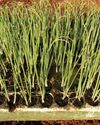
Onion sowing choices
Your particular growing conditions will dictate whether you should use seedbeds, direct seeding, or plugs for sowing onions
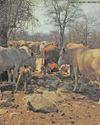
Golden cattle for the bushveld
This article showed that a carefully selected new crossbreed offered sound advantages for extensive ranching in harsh areas.
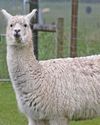
The ins and outs of alpaca farming
The South African alpaca industry is on the rise, says Alison Notley, president of the South African Alpaca Breeders’ Society and owner of Helderstroom Alpacas near Villiersdorp. She spoke to Sinenhlanhla Mncwango about the origin of this gentle camelid and how its fleece is being processed into quality products.

Cheese and Rosemary Scones
Easy-to-make savoury treats that are great for lunch boxes.

Cape Town on a budget: a smart stay at the Holiday Inn Express
What's the best way to enjoy Cape Town's top food and nightlife without having to splurge on a five-star hotel? Brian Berkman has some good suggestions.

Managing grazing and hay production in Eragrostis fields
Summer is almost gone, so it’s time to start thinking about your pastures and hay for winter
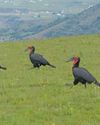
Protecting the king of the hornbills
It is estimated that the southern ground hornbill’s original range in South Africa has decreased by two-thirds over the past century. Mike Burgess looks at the threats facing this iconic hornbill species and what is being done to halt its decline, including custodianship programmes that motivate landowners to protect it.

Jam-packed year for Volkswagen
It is going to be a busy year for Volkswagen as the German carmaker introduces a host of new passenger and commercial vehicles to the South African market. Charl Bosch attended the annual VW Indaba in Kariega, Eastern Cape, to get a glimpse of its 2025 product roll-out.

How to achieve ostrich product perfection
Ostrich farming is a well-established industry in South Africa which, aside from meat, produces feathers and leather that are in demand around the world. Dr Anel Engelbrecht, ostrich researcher at the Western Cape Department of Agriculture’s Oudtshoorn Research Farm, shared tips with Glenneis Kriel on how farmers can improve the quality of their ostrich feathers and leather.
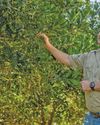
Building the macadamia puzzle one insight at a time
Trees that produce good yields of quality nuts form the foundation of a successful macadamia farm. Leaving no stone unturned in his approach, farmer Hentie van der Merwe has proven that paying attention to every factor that influences his crop yields the best results.